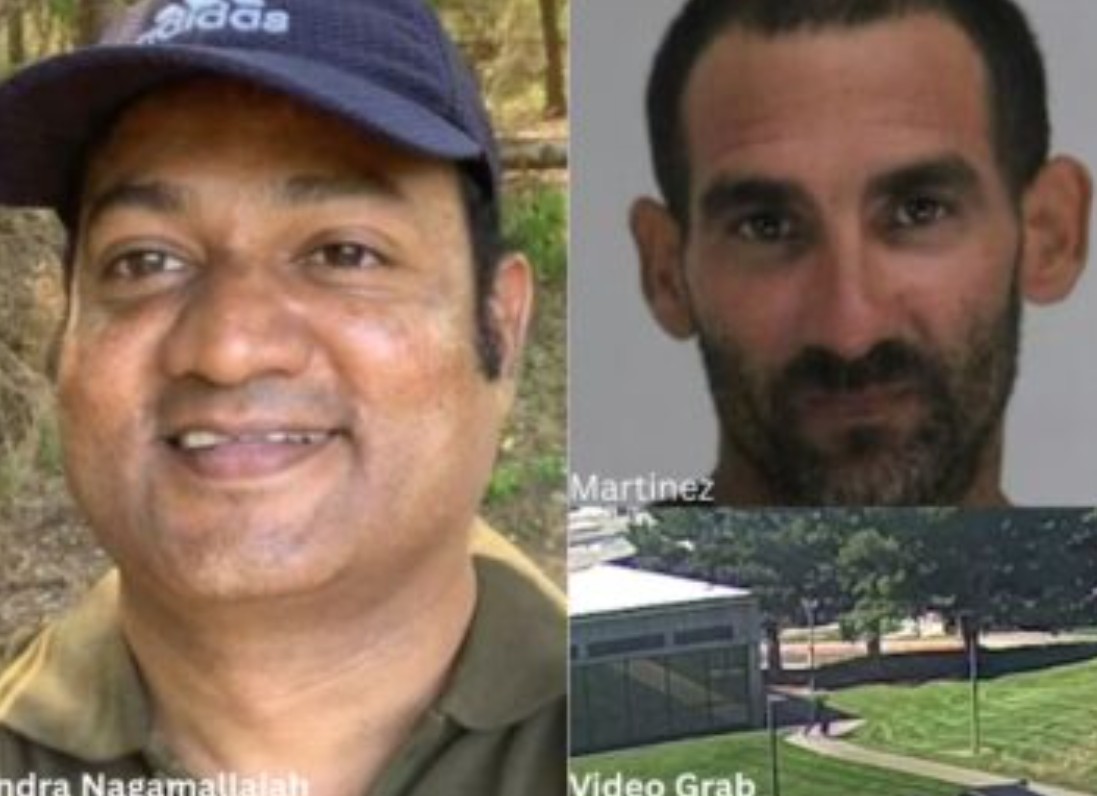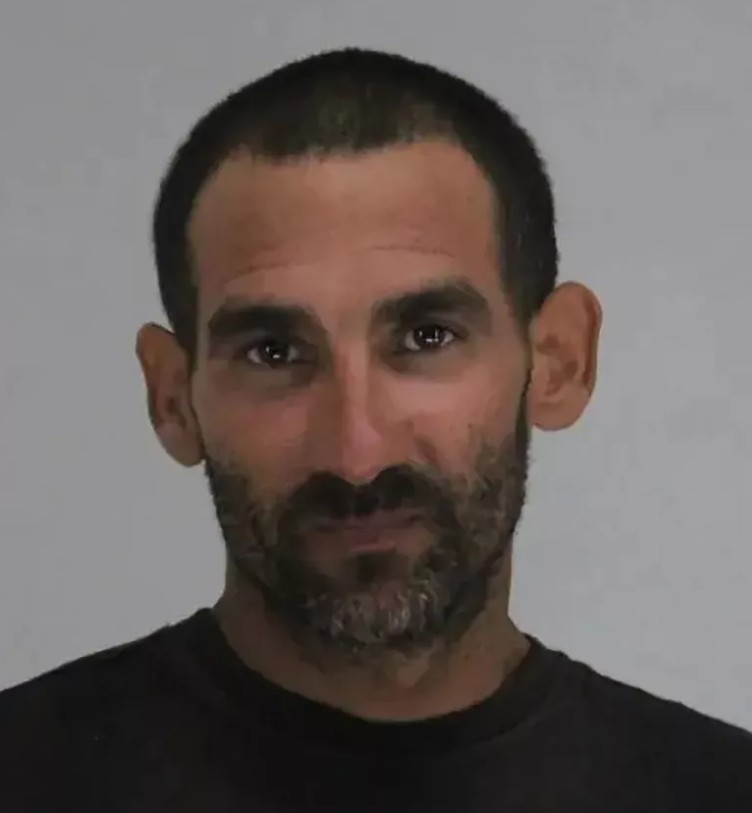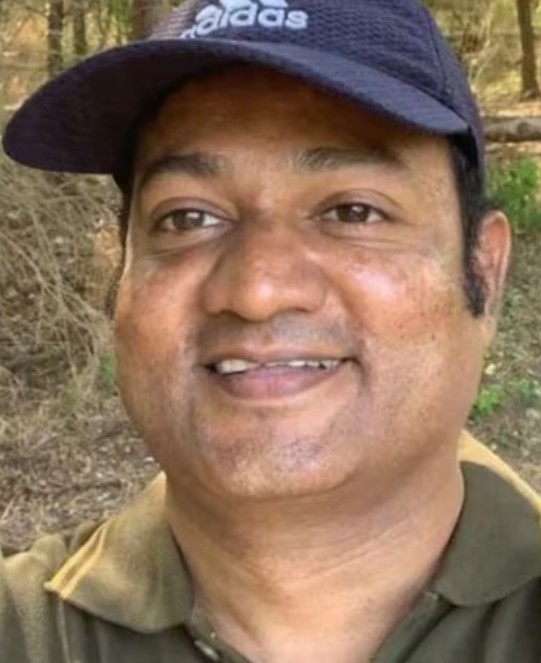Yordanis Cobos-Martinez Video Kill Chandra Nagamallaiah in Dallas Motel Beheading
A shocking act of violence in Dallas has not only devastated a family and community but also reignited national debate over U.S. immigration enforcement. On September 10, 2025, Dallas police arrested 37-year-old Yordanis Cobos-Martinez, a Cuban national, on charges of capital murder after he allegedly beheaded his motel manager during a workplace dispute. The victim, 50-year-old Chandra Moul Nagamallaiah, was killed inside the Downtown Suites Motel on Samuell Boulevard, where he worked and lived with his family.

The gruesome nature of the crime, combined with the suspect’s criminal record and unresolved immigration status, has transformed what would otherwise be a horrifying local tragedy into a flashpoint in the broader national debate over immigration, deportation, and public safety.
Contents
The Crime and Video
According to the Dallas Police Department, officers were dispatched around 9:30 a.m. on September 10 in response to reports of a stabbing. When they arrived at the Downtown Suites Motel, they discovered a scene of unthinkable brutality. Preliminary findings showed that the victim had been cut multiple times with a machete before being decapitated.
The full uncensored video in which Yordanis Cobos-Martinez caused the death of Chandra Nagamallaiah
yordanis-cobos-martinez-video-1.mp4
yordanis-cobos-martinez-video-2.mp4
yordanis-cobos-martinez-video-3.mp4
Dallas Fire-Rescue confirmed that Nagamallaiah died at the scene. Witnesses said the attack occurred in front of the victim’s wife and son, both of whom attempted to intervene but were unable to stop the assault. The suspect fled the scene on foot, still carrying the bloodied weapon, but was arrested shortly afterward by officers who noticed him nearby, visibly covered in blood.
Police recovered the machete, along with Nagamallaiah’s cell phone and motel key card.
The Dispute That Sparked Violence
Details from an arrest affidavit obtained by CBS News Texas shed light on what may have triggered the violence. Cobos-Martinez, who worked as a maintenance employee at the motel, was reportedly upset after being told not to use a broken washing machine. The instruction, relayed through another employee instead of being delivered directly by the manager, appeared to anger him.

Instead of dropping the matter, Cobos-Martinez armed himself with a machete and confronted Nagamallaiah. Witnesses said he chased the manager from one part of the motel to the office area, where Nagamallaiah’s family was present. Despite desperate attempts to escape and calls for help, the confrontation ended in decapitation.
After the act, Cobos-Martinez allegedly placed the severed head in a dumpster outside the motel. A subsequent statement from the Department of Homeland Security (DHS) claimed that the suspect also kicked the victim’s head “around like a soccer ball” in the aftermath.
Graphic Footage Circulates Online
In the hours following the murder, a disturbing video began to circulate on social media. The one-minute-and-thirty-three-second clip, allegedly recorded by a static CCTV camera in the motel courtyard, appeared to show parts of the attack.

Although Newsweek and other outlets have not independently verified the footage, it has been shared more than 110,000 times across platforms. Its circulation has intensified public outrage, with many expressing disgust not only at the act itself but also at the viral spread of such gruesome imagery.
Eyewitnesses interviewed by local outlets described the incident as “sick,” “disgusting,” and “out of the norm.” One witness recalled, “He chased him from 108 all the way to the office. The man was trying to get into the office to tell his family.”
The Suspect’s Troubling Background
The revelations about Cobos-Martinez’s past have only added to the anger surrounding the case. Court and jail records reviewed by CBS News Texas reveal that he had a history of criminal activity in the United States. His record included arrests in Florida for auto theft and charges in Houston for assault and indecency with a child.
Additionally, DHS confirmed that his rap sheet listed serious crimes such as carjacking, false imprisonment. These offenses had made him a priority for removal from the United States. He had been ordered deported, but Cuba refused to accept him back, leaving U.S. authorities with limited options.
Despite his record, Cobos-Martinez was released from federal custody earlier this year. Following the Dallas murder, Immigration and Customs Enforcement (ICE) immediately lodged a detainer to ensure he would not be released again.
Immigration and Policy Fallout
The brutal killing has become more than just a murder case it has turned into a lightning rod for political controversy. Officials at the Department of Homeland Security did not mince words in their public statements.
Tricia McLaughlin, assistant secretary for public affairs at DHS, said in a statement to Newsweek:
“This sick alien beheaded this man in front of his wife and child and proceeded to kick the victim’s head around. This gruesome, savage slaying was completely preventable if this criminal illegal alien was not released by the Biden Administration because Cuba would not take him back.”
Dexter Henson, another DHS public affairs officer, echoed the criticism, saying:
“This barbaric criminal was released because Cuba would not accept him due to his criminal history. ICE has now lodged the detainer, ensuring this individual remains in custody.”
The Trump administration, which returned to power earlier this year, has vowed to change policies regarding non-deportable individuals. Officials announced new measures that would send criminal aliens to third countries such as Eswatini, Uganda, South Sudan, or CECOT if their home countries refuse to accept them. DHS suggested that if such policies had been in place earlier, Cobos-Martinez might not have been free to commit the Dallas killing.
Victim’s Life and Community Reaction
While political leaders trade blame, the community where the crime occurred remains deeply shaken.
Chandra Moul Nagamallaiah was not only the manager of the Downtown Suites Motel but also lived there with his wife and son. Those who knew him described him as hardworking, responsible, and devoted to his family.
“This is not normal to happen,” one resident told CBS Texas. “It’s sick, disgusting… I’m speechless, it’s out of the norm and it’s mind-blowing.”
The horror of the attack, especially given that it happened in front of his loved ones, has left neighbors struggling to comprehend the brutality.
Legal Proceedings
Cobos-Martinez now faces a capital murder charge in Dallas County. Jail records show he is being held without bond on both the murder charge and the immigration detainer. If convicted, he could face either the death penalty or life imprisonment without parole.
The case will likely unfold on two parallel tracks: the state-level criminal trial and the federal immigration proceedings. Meanwhile, lawmakers are expected to continue scrutinizing the systemic failures that allowed a man with such a violent history to remain free in the United States.
Broader Implications
This case highlights one of the thorniest problems in U.S. immigration enforcement: what to do with non-citizens who have serious criminal convictions but cannot be deported because their home countries refuse to take them back.
Advocates for stricter immigration enforcement argue that public safety demands indefinite detention or removal to third countries. Critics counter that such policies raise human rights concerns and diplomatic challenges.
For many Americans, however, the Dallas murder is less an abstract policy problem than a deeply personal reminder of what can go wrong when the system fails.
The beheading of Chandra Moul Nagamallaiah at a Dallas motel by Yordanis Cobos-Martinez is a tragedy that transcends city boundaries. It is the story of a hardworking immigrant family destroyed in seconds by a coworker with a violent history. It is also the story of systemic gaps in immigration enforcement, where legal limitations and international diplomacy collide with public safety concerns.
As Cobos-Martinez awaits trial, the Dallas community continues to mourn a man described as diligent and devoted to his loved ones. At the same time, policymakers in Washington are already using the case as an example in the ongoing battle over immigration enforcement.
Whether justice in the courtroom or reforms in policy will come soon enough remains uncertain. What is clear is that the killing has left scars far beyond the motel walls scars that stretch across families, communities, and the nation’s political landscape.
Hot News -Tyler Robinson Video and Allegedly Kill Charlie Kirk
Charlie Kirk Shooting Video on X (Twitter) Reddit and Close Up
Isabella Ladera y Beéle video viral con Erome and Controversy
Iryna Zarutska Video and The Day of the Incident
Louisa Jespersen and Maren Ueland Video and Crime
Ikbal Uzuner Video and The Father’s Testimony
Major Galore Viral Video on Twitter and Public Reaction

